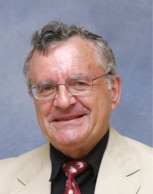Daniel Kahneman 1934-2024
By Shlomo Maital

Daniel Kahneman passed away in Princeton, NJ, yesterday (Wednesday), three weeks after his birthday. He was 90 years old. In 2002 Kahneman, an Israeli psychologist, won the Nobel Prize for Economics, together with Vernon Smith.
And therein, lies a story. How in the world can a psychologist win a Nobel Prize in a discipline distant from his own, as day is distant from night?
In 2003, I wrote a review article on Kahneman (and his sidekick Amos Tversky, who died of cancer in 1995 – otherwise, he would have shared the Nobel with Kahneman).
I wrote: “There are two ways to research how people make judgments under uncertainty. One is mathematics. Define a minimum set of axioms necessary to obtain analytical solutions for equilibrium. Examine that equilibrium’s efficiency, optimality, stability and uniqueness.” For 150 years, this is how economists did research, largely, creating La-La Land theories and ‘verifying’ them by crunching numbers.
But there is another way. “A second approach is behavioral. Offer people (surgeons, statisticians, psychologists, ordinary people) a series of pair choices. Would you prefer—
A. 50% chance to win a 3-week tour of England, France, and Italy or B. (100% certain) 1-week tour of England. Observe their behavior carefully and generalize.”
Surprise! Turns out that people are more complex in their behavior (toward risk, toward EVERYthing!) than economists’ math models. It took two Israeli psychologists, who amazingly published their keystone 1979 paper in the leading theoretical, mathematical journal, Econometrica AND SPOKE TO ECONOMISTS IN THEIR LANGUAGE, BUT SINGING A COMPLETELY DIFFERENT TUNE! They presented their psychological theory of behavior toward risk, “Prospect Theory”, as a mathematical model – with behavioral evidence.
Perhaps Kahneman’s most influential book is 2011 Thinking, Fast and Slow. The book’s main thesis is that we have two modes of thought: “System 1”, fast, instinctive and emotional; “System 2”, slower, more deliberative, and more logical. A lot of what we do is driven by System 1 and the emotional, limbic part of our brain. (That’s how I chose, at age 18, to study Economics. System 1. Bad move! ) .
Economics today has changed its DNA, from mathematics to behavior. In large part, thanks to Kahneman.
If you have patience for a few hundred more words, read below how Kahneman gained crucial insights about behavior, from Israeli pilots:
Daniel Kahneman gave a lecture to Israeli fighter pilots about effective training practices. During his talk, Kahneman discussed the well-supported concept that rewarding good performance is more effective than punishing poor performance. An incredulous senior Air Force instructor confronted Kahneman and said that criticising his trainee pilots for poor execution of aerial manoeuvers worked. How did he know? The instructor had noticed that when he criticized trainees after they poorly executed a manoeuver, they almost always improved on their next attempt. Sharp criticism works.
Kahneman drew a chalk target on the floor, had the officers turn their backs to the target and try to hit the target with two no-look coin throws. Officers who were far from the target on their first throw improved on the second throw; officers who were close to the target on their first throw did worse on their second throw.
Kahneman showed how we conflate ‘effective feedback’—either positive or negative—with regression to the mean. Did poorly on the maneuver? Chances are, the next try will be better. Did great? Maybe next time will be less great. Behavior tends to the mean.
I often wonder how different the world might be today, if economists had not taken a wrong turn, from Adam Smith in 1776, through Afred Marshall in 1880, to large-scale black-box econometric models in the 1960s. And just did a simple pivot, as Kahneman and Tversky did — get out of your office and study real people.
Rest in peace, Daniel Kahneman. You can say what few others can – as a researcher, your work really did change the world and changed the way we think and act and choose. For the better.


Leave a comment
Comments feed for this article